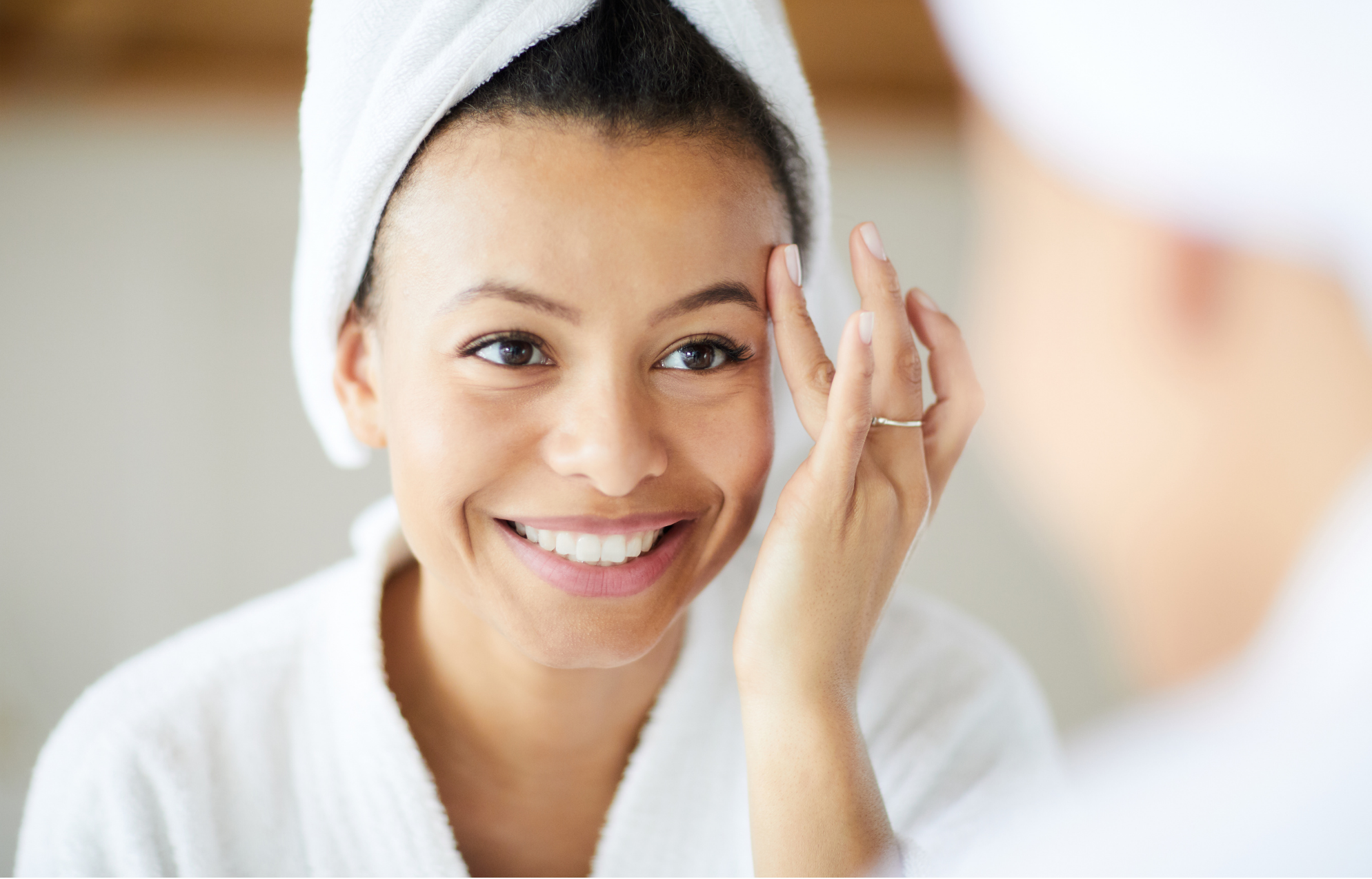5 ways to add antiaging to your daily routine

We all want to have youthful, healthy looking skin, but who has the time to follow multi-step routines?! Looking after your skin shouldn’t be so difficult. That’s why at Qyral we’ve devised a simple regimen that will suit even the busiest of lifestyles. If you’re serious about protecting your skin, without it taking hours out of your day, here are five simple steps that anyone can follow.
1. Use products that contain hyaluronic acid

This simple ingredient can make a big difference to your skin. Hyaluronic acid is a sugar molecule found naturally in skin, nerve, and connective tissues. It supports cellular health by boosting water absorption, keeping your skin hydrated. It’s so effective that it can absorb up to a thousand times its own weight in water, and that’s great news for your skin. Increased hydration smooths out wrinkles and keeps skin supple. It also helps the other ingredients in your skincare products to penetrate deeper into the skin, making them more effective. Look for “Sodium Hyaluronate” on the label of your skincare products.
2. Add ceramides to protect your skin barrier

Ceramides are natural fats that form up to 50% of your natural skin barrier. They work as the “glue” that binds cells together. This barrier is super important for protecting your skin against impurities and bacteria, and for locking moisture in where it’s most needed. Qyral products use phytoceramides, which are fats derived from plants.
Without ceramides, your skin will quickly begin to dry and become irritated. Sun damage can deplete ceramides, and as we get older we stop producing them at the same level as when we’re young. Using products that contain ceramides can replenish those we lose and help keep skin healthier.
3. Introduce retinol to your routine early

Dermatologists used to recommend waiting until you turn thirty to add retinol to your skincare routine. Now the latest advice suggests starting in your mid-20s. But what is retinol, and what does it do?
Retinol is a derivative of Vitamin A. You can find other, similar molecules in your skincare as well, such as retinyl palmitate and retinoic acid. Collectively they are called retinoids. Vitamin A is a skincare super-ingredient, used to boost the immune system, promote cellular turnover, and increase hydration. In fact there isn’t much retinol can't do. It can prevent acne breakouts, unclog pores, brighten skin, and promote collagen growth.
The only downside to using retinol or retinoids is they can be irritating. Start with a small amount, and don’t leave it on your skin for too long if irritation occurs.
4. Use sunscreen every day

We all know we should use sunscreen more frequently, but few things will age your skin faster than UV light. Sunlight is a form of radiation, and it causes permanent damage such as wrinkles, leathery texture, liver spots and other discolorations, and of course skin cancer. It’s bad news!
The CDC recommends using sunscreen of SPF 15 or higher every day, even if it’s cold or cloudy outside. SPF stands for Sun Protection Factor, and is a way of calculating how long you can be outside. SPF 15 means you’re safe in the sun up to 15 times longer than with just bare skin. If you’re outside a lot, reapply sunscreen every two hours, even if you’re still within the SPF safety window.
5. Eat well!

Our bodies can only work with the nutrients we give them. Eating a healthy, balanced diet is the best way to support your overall health and keep your skin looking young and vibrant. Eat plenty of fresh fruits and vegetables to get antioxidants. These molecules protect you from damage caused by pollution, tobacco smoke, and metabolic byproducts. If you can’t get fresh fruit and veg all the time, buy frozen instead. It’s often just as nutritious, and cheaper and easier to access.
Avoid greasy, fried foods and too much sugar, and instead aim to eat lots of lean or plant-based proteins. And don’t be afraid to try new things. Different color foods often indicate different nutrients, so experiment with a varied diet to get the most benefit from your food.
In conclusion
Looking after your skin doesn’t have to be difficult. It all starts with cellular health, and that means putting the right nutrients into your body. Next, protect your skin from harmful UV light and pollution. Then support your cellular health with skincare ingredients that work with your natural turnover cycle. You'll have effortlessly youthful, healthy-looking skin in no time!